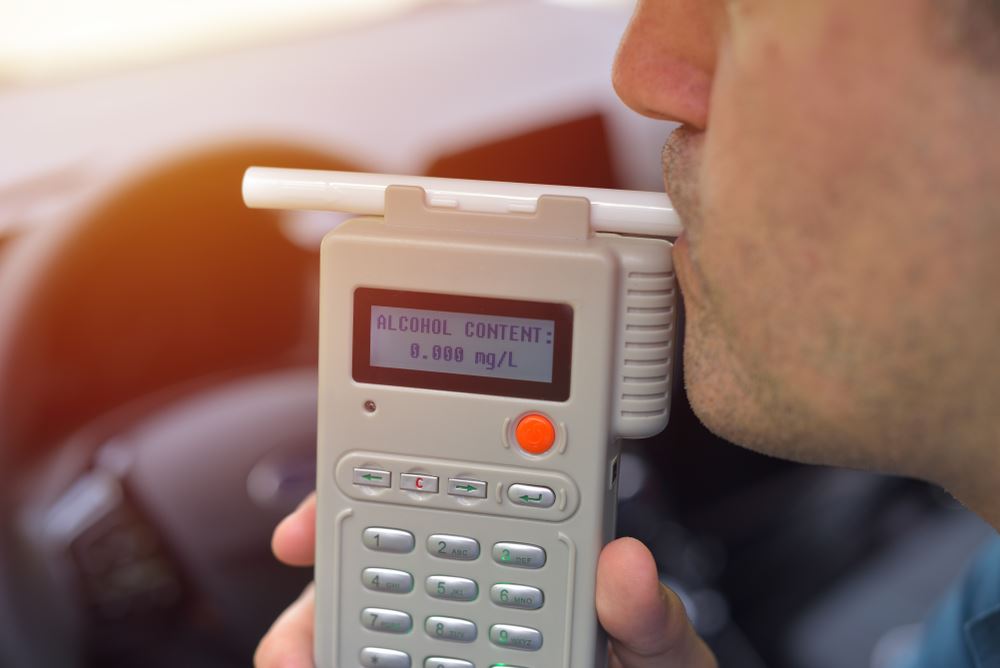When it comes to DWI cases, there's no margin for error. Yet the technology that informs these legal battles—breath alcohol testing—is anything but foolproof. Add a medical condition like diabetes into the mix, and you have a recipe for legal complications. You deserve the best possible defense, especially when your health conditions could put you at a disadvantage. That's why you need Zendeh Del & Associates, PLLC, the leading name in DWI defense in Galveston, Texas. In this blog, we'll explore the critical intersection of diabetes and breath alcohol testing—issues you can't afford to ignore.
Breath alcohol testing plays a pivotal role in DWI cases, serving as a linchpin for prosecutions nationwide. However, the technology behind breath alcohol testing is not infallible and can be significantly impacted by various factors, including medical conditions like diabetes. In this comprehensive blog, we'll explore the complexities of how diabetes affects breath alcohol testing and delve into the technical limitations of these devices.
Part 1: Understanding the Complex Relationship
The Basics of Breath Alcohol Testing
Breath alcohol tests are designed to measure the concentration of alcohol in a person's breath, approximating their blood alcohol concentration (BAC). Though sophisticated, these devices are calibrated for an "average" person, not accounting for medical conditions.
The Importance of Understanding Diabetes
Diabetes affects over 34 million Americans. For those facing a DWI charge, understanding the impact of diabetes is crucial, as unstable blood sugar levels can mimic the signs of intoxication, confound sobriety tests, and affect breath alcohol test accuracy.
Mimicking Signs of Intoxication
High or low blood sugar levels can cause symptoms similar to intoxication, such as slurred speech and impaired motor control.
Sobriety Tests and Diabetes
Field sobriety tests are often confounded by diabetic symptoms, affecting balance, vision, and cognitive function.
Breath Alcohol Testing and Diabetes
Diabetes introduces unique challenges into breath alcohol testing. The metabolic process of gluconeogenesis, common in people with high blood sugar, produces isopropyl alcohol, which breathalyzers may not effectively differentiate from ethyl alcohol.
Legal Implications
Failure to consider the impact of diabetes in breath alcohol testing can result in wrongful convictions.
Case Studies in Part 1
- People v. Smith: A Type 1 diabetic was acquitted due to expert testimony on the impact of his condition on the breathalyzer results.
- Johnson v. State of Texas: A Type 2 diabetic was acquitted when blood tests contradicted the initial breathalyzer and field test results.
Part 2: Technical Pitfalls and Legal Nuances
Technical Issues with Breath Testing Devices
Calibration
Regular calibration is crucial for breathalyzers, but they often assume an "average" physiology, which can be problematic for diabetics.
Environmental Factors
Factors such as temperature and altitude can affect the accuracy of breathalyzers.
Differentiating Types of Alcohol
Many breathalyzers can’t distinguish between ethyl and isopropyl alcohol, leading to potential false positives for diabetics.
The Diabetic Dilemma in Part 2
- Case 3: Williams vs. State of Texas: A diabetic individual was acquitted after his legal team demonstrated that his body naturally produced isopropyl alcohol.
Legal Nuances
Expert Testimony
Experts can provide counterpoints to breathalyzer results.
Challenging the Device
Legal precedents permit the defense to challenge the validity of the breathalyzer test, especially if it hasn’t been properly calibrated.
Rights to Alternative Testing
The accused may have the right to request more accurate blood tests.
Conclusion: The Way Forward
The complexities of diabetes and breath alcohol testing underscore the need for legal professionals to understand both the medical and technical aspects of this issue. Law enforcement and legal experts must collaborate to ensure the accuracy and fairness of DWI testing procedures.
As technology evolves, it's crucial that breath testing devices become more sophisticated to differentiate between types of alcohol, and that legal guidelines are revised to consider medical conditions like diabetes.
For immediate legal representation or advice concerning DWI cases complicated by medical conditions like diabetes, don't hesitate to reach out to us 24/7 at (409) 740-1111.
By diving deep into the intersection of diabetes and breath alcohol testing, we hope to foster a better understanding of these complexities to ensure fairer judicial outcomes. This is a critical area that demands attention from both the legal and medical communities as we aim to make the judicial system as just and equitable as possible.
Breath alcohol testing and diabetes are complex subjects that demand a knowledgeable legal team. With one of the state's 16 DWI super lawyers, Jonathan Zendeh Del, our firm is uniquely qualified to handle your case.
As technology advances, so do the legal challenges. Don't trust your case to just anyone. Trust it to the experts. Zendeh Del & Associates, PLLC, is at the forefront of understanding the complexities that could impact your case.
For immediate, expert legal representation on DWI cases complicated by diabetes or other medical conditions, reach out to Zendeh Del & Associates, PLLC, anytime—day or night—at (409) 740-1111.
So, if you're facing a DWI charge and have diabetes, your choice of legal representation could be the most critical decision you make. Don't gamble with your future. Choose Zendeh Del & Associates, PLLC—the firm that understands the complexities you're facing. With us, you're not just another case; you're a person deserving of the best defense. Call today.




